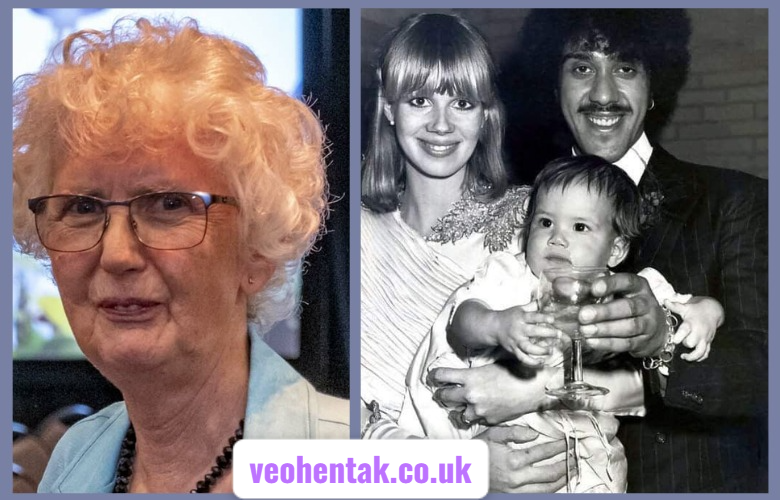Caroline Crowther is a renowned maternal-fetal medicine researcher and professor based in New Zealand and Australia, known for her influential work in obstetrics and perinatal health, including major randomized trials and meta-analyses on gestational diabetes, pre-term birth, and neonatal outcomes.
Caroline Crowther is a leading figure in maternal-perinatal health whose research has shaped clinical practice worldwide. This article provides an in-depth look at her early life, academic journey, major contributions—including her landmark trials on gestational diabetes and pre-term labour—her role in building research infrastructure, recognition and awards, and what her legacy means for clinicians, policymakers and patients alike. With insights into her methods, collaborations and future directions, this piece offers a practical and human portrait of a scientist whose work matters
Early Life and Education of Caroline Crowther
Caroline Crowther was born and educated in Australia (and subsequently New Zealand) where she embarked on her journey in medicine and research. Her early interest in obstetrics and neonatology led her to complete specialist training and research degrees in maternal-fetal medicine. Over time she assumed roles at institutions such as University of Auckland and University of Adelaide, establishing herself as a leading academic. Her foundational education enabled her to integrate clinical work with large-scale trials, setting the stage for her later major contributions to obstetric research.
Quick bio
| Field | Details |
| Full Name | Professor Caroline Anne Crowther |
| Profession | Maternal–Fetal Medicine Specialist, Clinical Researcher, Academic |
| Known For | Groundbreaking trials in gestational diabetes, pre-term birth, and perinatal outcomes |
| Current Roles | Professor of Maternal & Perinatal Health, University of Auckland (NZ); Affiliate, University of Adelaide (AU) |
| Education | MBBS (Medicine), PhD (Obstetrics and Perinatal Health) – Australia/New Zealand |
| Research Focus | Maternal–fetal medicine, gestational diabetes, neonatal outcomes, neuroprotection in pre-term birth |
| Major Publications | New England Journal of Medicine (Gestational Diabetes Trial), The Lancet, BMJ |
| Notable Awards | Fellow of the Royal Society Te Apārangi (2019); Gluckman Medal for Health Research Excellence (2025) |
| Contributions | Established large-scale clinical trial networks in Australasia; advanced evidence-based obstetric care |
| Years Active | 1990s – Present |
| Nationality | New Zealander / Australian |
| Institutions Affiliated | University of Auckland, University of Adelaide, Liggins Institute |
| Key Impact | Influenced international guidelines for gestational diabetes and pre-term neuroprotection |
| H-Index / Citations | H-Index > 90; Citations > 60,000 (approx.) |
| Personal Qualities | Ethical leadership, mentorship, collaboration, patient-centred research focus |
| Website / Profile | Research.com Profile |
Research Focus: Maternal & Perinatal Health
From early on, Caroline Crowther specialised in maternal and perinatal health, focusing on conditions such as gestational diabetes, pre-eclampsia, preterm birth and fetal outcomes. She has published widely on these topics and is recognised for moving evidence into practice. Her work addresses critical questions: how to improve birth outcomes, reduce neonatal complications, and refine obstetric interventions—making her research deeply practical for clinicians worldwide.
Landmark Study: Gestational Diabetes Trial
One of Crowther’s landmark works is the randomised trial on gestational diabetes mellitus (GDM) treatment and pregnancy outcomes published in The New England Journal of Medicine. The trial demonstrated that treatment of GDM significantly reduced serious perinatal complications. Her findings transformed how obstetricians approach GDM screening and management. The significance of this trial cannot be overstated: it influenced guidelines and clinical practice internationally.
Pre-term Birth & Neuroprotection Research
Another major domain for Caroline Crowther is pre-term birth and fetal neuroprotection. Her work includes trials of magnesium sulfate given before pre-term birth to improve neurodevelopmental outcomes in offspring. Through rigorous methodology and multicentre collaboration, she helped establish evidence that informs neonatal intensive care, obstetric decision-making and long-term follow-up of pre-term infants.
Building Research Infrastructure and Collaboration
Beyond individual trials, Crowther has been instrumental in building research infrastructure: securing large grants, coordinating multi-centre studies, mentoring younger investigators and shaping the field of perinatal research in Australasia. According to institutional records, she is principal investigator on multiple projects funded by major bodies such as the Health Research Council of New Zealand. Research Data Australia+1 Her ability to bring together clinicians, researchers and statisticians has been central to her success and the durability of her impact.
Also read this: Who Is Tatiana Sanchez Partner? Unveiling Her Private Love Life
Methodological Rigor and Trial Design
A key reason for the enduring value of Crowther’s work is her emphasis on methodological rigour. Randomised controlled trials, meta-analyses and systematic reviews form the backbone of her publications. For example, her use of large sample sizes, robust endpoints and long-term follow-up has rendered her findings highly credible. For practitioners and researchers, her body of work is a model of how to conduct obstetric-perinatal research with real-world relevance.
Impact on Clinical Guidelines and Practice
The translation of Crowther’s research into practice has been substantial. Her trials have contributed to changes in guidelines concerning gestational diabetes screening and treatment, management of threatened pre-term labour and neonatal neuroprotection. Health systems in Australia, New Zealand and beyond reference her work. Her influence extends to training programs, obstetric protocols and perinatal policy frameworks.
Awards, Recognition and Academic Standing
In recognition of her contributions, Caroline Crowther was elected a Fellow of the Royal Society Te Apārangi (New Zealand) in 2019.She has received major honours including the Gluckman Medal for research excellence in health sciences in 2025. These accolades reflect her standing not just in obstetrics and neonatology but across health and biomedical research more broadly.
Global Influence and Training the Next Generation
Crowther’s influence is global: her publications have been cited thousands of times, and she collaborates internationally. She also plays a mentoring role, training postdoctoral researchers, supervising PhD students, and contributing to capacity building in low- and middle-income countries focused on maternal and newborn health. Her legacy includes not only knowledge, but people.
Challenges and Ethical Dimensions in Her Work
Conducting large maternal and perinatal trials involves significant challenges: ethical considerations of enrolment during pregnancy, coordinating multi-centre logistics, long-term follow-up of children, and ensuring applicability across diverse populations. Crowther’s work acknowledges and addresses these issues. Her emphasis on informed consent, data integrity and applicability to high-risk populations ensures her research remains ethically sound and relevant.
The Role of Technology and Data in Her Studies
Caroline Crowther’s trials have increasingly embraced advanced data systems, electronic monitoring, large-scale databases and statistical methods that allow for nuanced risk-adjusted analyses. The combination of clinical insight with data science reflects the evolution of maternal-perinatal research, and Crowther is at the forefront of that change.
Personal Qualities and Professional Ethos
Beyond the numbers and trials, Crowther is known for qualities that underpin her success: persistence, ethical leadership, collaborative spirit, and a commitment to translating research into real-world benefit. She balances clinical insight with research ambition, always with patients and families in mind. Numerous colleagues and mentees speak of her integrity and generosity.
Future Directions in Caroline Crowther’s Field
Looking ahead, the research agenda Crowther is engaged in includes:
- Refining personalised care for pregnant women (e.g., stratified by risk)
- Expanding neuroprotection research in pre-term infants
- Integration of artificial intelligence and large-scale data in maternal-fetal medicine
- Greater focus on global health equity in maternal and perinatal outcomes
Her ongoing work promises further improvements in birth outcomes and child development across the world.
Why Caroline Crowther’s Work Matters for YOU
Whether you are a clinician, researcher, pregnant person or policymaker, Caroline Crowther’s work matters. It provides the evidence base for safer births, better neonatal outcomes, and informed decisions in obstetrics. Her trials help answer questions like: What treatments genuinely reduce risk? and How can interventions be applied in real-life settings? For anyone interested in maternal health, Crowther is a name worth knowing.
Summary & Key Takeaways
- Caroline Crowther is a world-leading maternal and perinatal researcher whose trials have had global impact.
- Her work spans gestational diabetes, preterm birth, fetal neuroprotection and perinatal outcomes.
- She combines rigorous trial design, collaboration, mentorship and data innovation.
- Her findings inform guidelines, improve clinical practice and support healthier births.
- Future work expands into personalised care, data-driven medicine, and global health.
Conclusion
In a field as vital as maternal and neonatal health, few figures combine the clinical insight, research integrity and global influence of Caroline Crowther. Her work has changed the way we think about pregnancy complications, neonatal risk and long-term outcomes for children. As both practitioner and scientist, she has bridged the gap between research and real-world benefit. The story of Caroline Crowther is one of persistence, collaboration and real human impact — a model for the next generation in health research and maternal care.
FAQs
1. Who is Caroline Crowther?
Caroline Crowther is a maternal-fetal medicine researcher and professor whose work focuses on pregnancy complications, neonatal outcomes and perinatal health, based in New Zealand/Australia.
2. What are her most important studies?
Her landmark studies include the gestational diabetes treatment trial (NEJM) and pre-term birth/neuroprotection trials (e.g., magnesium sulfate studies).
3. Why is her research significant?
Her research is significant because it produced high-quality randomized evidence that influenced guidelines, improved practice and ultimately better birth and neonatal outcomes.
4. Where does she work?
She has held positions at institutions such as the University of Auckland and University of Adelaide, and is involved in major perinatal research networks.
5. What’s next for her research?
Her future directions include personalised obstetric care, integrating big data and AI in perinatal research, expanding global maternal health equity, and further neuroprotection studies for pre-term infants.
Fore more info: veohentak.co.uk


